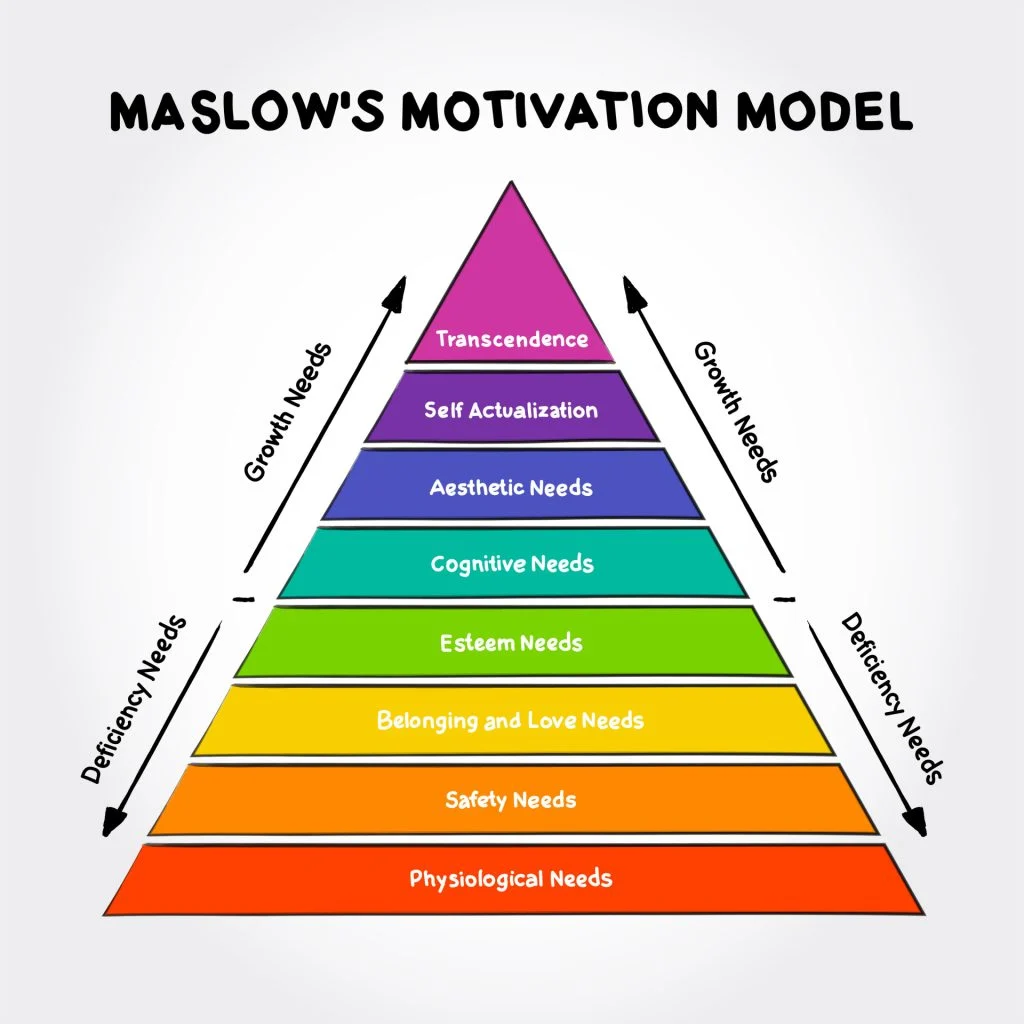Chapter 11: Personality
1/13
There's no tags or description
Looks like no tags are added yet.
Name | Mastery | Learn | Test | Matching | Spaced |
|---|
No study sessions yet.
14 Terms
Maslow’s hierarchy of needs
Start at the bottom and work your way up. You must start with the psychological needs first and then you are able to self-fulfill and realize one’s potential.
The basics are the most important. You can’t have one without the other.

What type of theory is the Big 5?
Trait theory. Trait - Personality that stays stable over time
Big 5 personality traits
O - openness to experience
C - conscientiousness
E - extroversion
A - agreeableness
N - neuroticism
Conscientiousness
how hard working, organized, detail oriented, responsible, dependable
-low: negligent, careless, lazy
Which theory is associated with Sigmund Freud?
Psychoanalytic theory
Freud’s personality theory: superego
morals and sense of right/wrong
Freud’s levels of consciousness
Preconscious: relatively easy to get it back into awareness when thinking about it
Horney’s personality theory
Internal conflicts result from inadequate child rearing experiences not unconscious drives
Adler
primary struggle is to overcome childhood feelings of inferiority
Jung
Personal and collective unconscious
Internal vs. External Locus of Control
Locus of control: degree to which a person perceives an outcome as being contingent on their own actions or those of external forces
External - can’t control - victim, fate
Internal - can control
Objective measures of personality
Interviews
Questionnaires
MMPI
Rorschach Test
the inkblot test
-Projective measure of personality
Thematic Apperception Test (TAT)
Projective measure of personality